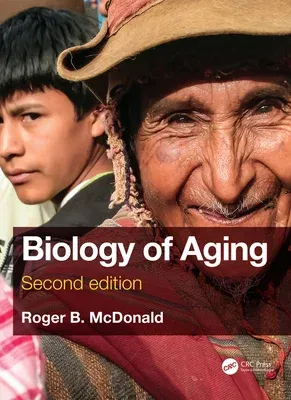Biology of Aging, Second Edition presents the biological
principles that have led to a new understanding of the causes of aging
and describes how these basic principles help one to understand the
human experience of biological aging, longevity, and age-related
disease. Intended for undergraduate biology students, it describes how
the rate of biological aging is measured; explores the mechanisms
underlying cellular aging; discusses the genetic pathways that affect
longevity in various organisms; outlines the normal age-related changes
and the functional decline that occurs in physiological systems over the
lifespan; and considers the implications of modulating the rate of aging
and longevity. The book also includes end-of-chapter discussion
questions to help students assess their knowledge of the material.
Roger McDonald received his Ph.D. from the University of Southern
California and is Professor Emeritus in the Department of Nutrition at
the University of California, Davis. Dr. McDonald's research focused on
mechanisms of cellular aging and the interaction between nutrition and
aging. His research addressed two key topics in the field: the
relationship between dietary restriction and lifespan, and the effect of
aging on circadian rhythms and hypothalamic regulation. You can contact
Dr. McDonald at rbmcdonald@ucdavis.edu.
Related Titles
Ahmad, S. I., ed. Aging: Exploring a Complex Phenomenon (ISBN
978-1-1381-9697-1)
Moody, H. R. & J. Sasser. Gerontology: The Basics (ISBN
978-1-1387-7582-4)
Timiras, P. S. Physiological Basis of Aging and Geriatrics (ISBN
978-0-8493-7305-3)

